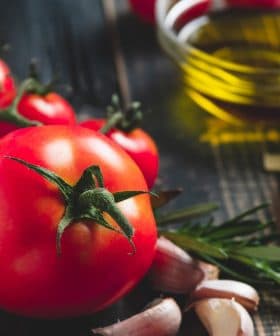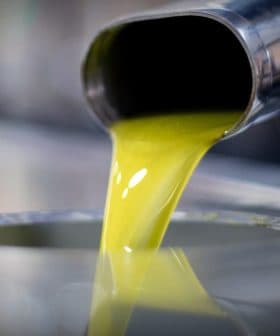Too Much Pollution Where you Live? Olive Oil Might Help
Exposure to air pollution, particularly particulate matter, is linked to heart and lung diseases, but a new study suggests that olive oil supplementation may help counteract some of the negative cardiovascular effects of pollution. The study found that olive oil supplements protected against endothelial dysfunction caused by exposure to air pollution particles, while fish oil supplements did not have the same effect on endothelial function.

Exposure to air pollution is known to have a negative effect on health. Particular matter, a mixture of small particles and liquid droplets that includes acids, organic chemicals, metals, and soil or dust particles is associated with heart and lung diseases.
A new study presented at the 2014 American Thoracic Society International Conference has shown that olive oil supplementation may counteract some of the negative cardiovascular effects of pollution.
Dr. Haiyan Tong, a research biologist with the Environmental Protection Agency and the study’s author, explained that exposure to airborne particulate matter can lead to endothelial dysfunction. The endothelial is made up of a group of cells that line the interior of blood vessels. When these cells are not functioning properly, it may lead to hardening of the arteries and is a risk factor for other cardiovascular events. The researchers wanted to examine if olive oil and fish oil would reduce this effect of pollution as they appeared to improve endothelial function in other studies.
For this study, 42 healthy men and women were recruited to either receive, once a day, 3 grams of olive oil (in supplement form), 3 grams of fish oil or no supplements for 4 weeks. After the supplementation the participants were exposed to controlled filtered air and the next day were exposed to concentrated ambient particular matter. The researchers then measured flow-mediated dilation of the brachial artery, which is a non-invasive ultrasound method to examine endothelial function. Measurements were taken right after exposure to the particular matter and 20 hours after.
The results showed that there were reductions in the dilation of the brachial artery — thus potentially showing endothelial dysfunction — in the control and fish oil groups, but not in the olive oil group. In addition, a protein known to be involved in the break down of blood clots was increased in the olive oil group. The researchers also noted that olive oil supplementation ameliorated changes in blood markers associated with vasoconstriction and fibrinolysis (a process that keeps blood clots from growing), while fish oil supplementation had no effect on endothelial function or fibrinolysis after pollution exposure.
The researchers concluded that their study suggested that use of olive oil supplements may protect against the adverse vascular effects of exposure to air pollution particles.
Supplements are often used for fish oil, however olive oil is known to enhance the flavor and texture of foods.
- American Journal of Respiratory and Critical Care Medicine: Olive Oil Supplements Ameliorate Endothelial Dysfunction Caused By Concentrated Ambient Particulate Matter Exposure In Healthy Human Volunteers
- The American Journal of Cardiology: Measurement of endothelial function by brachial artery flow-mediated vasodilation
- United States Environmental Protection Agency









